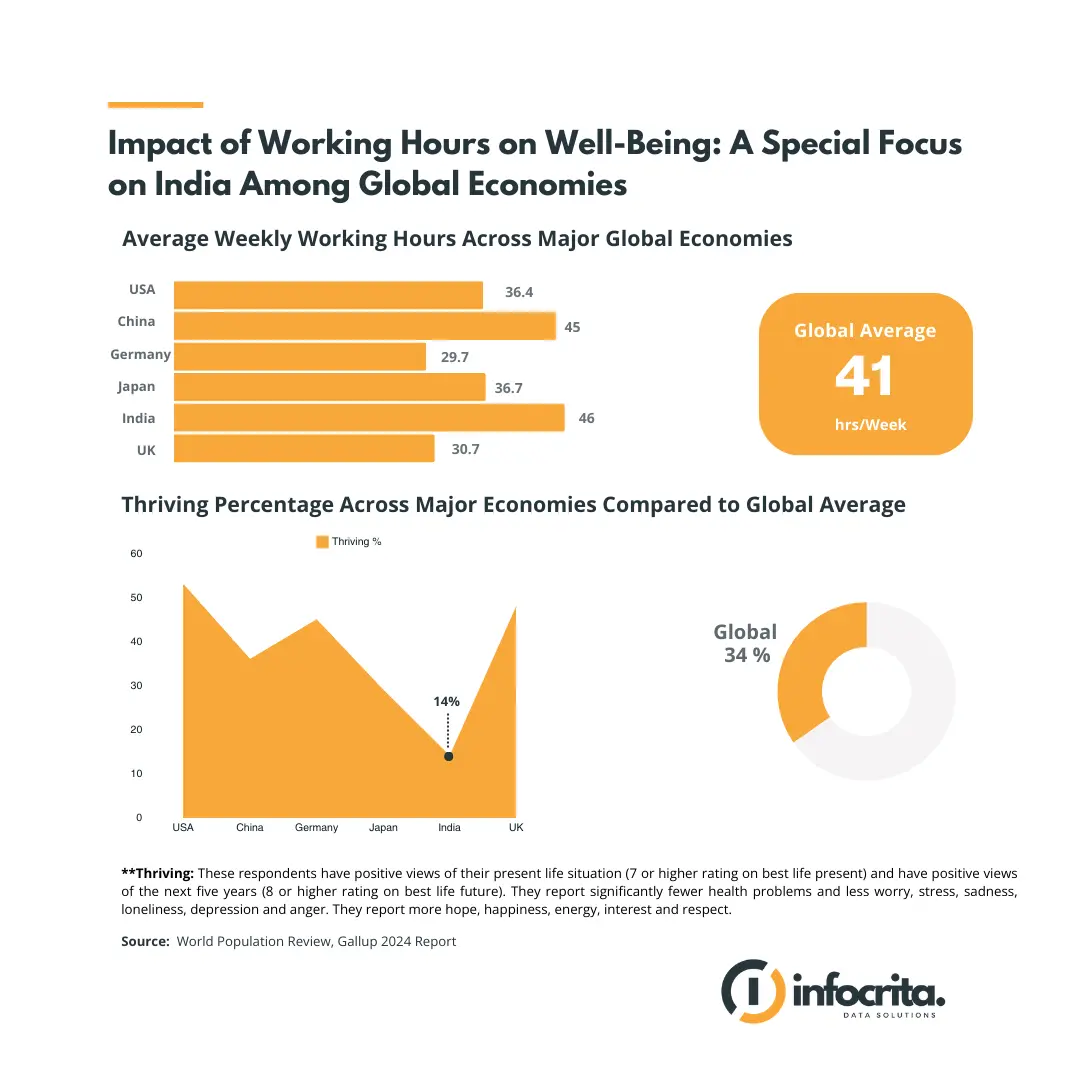India stands out globally for its relentless work ethic, with an average of 46 working hours per week, far exceeding the global average of 41 hours. While some view this as a testament to India's dedication and ambition, the Gallup 2024 State of the Global Workplace Report tells a different story. Despite high engagement rates, only 14% of Indian employees describe themselves as "thriving." This stark disparity between work hours and employee well-being paints a troubling picture.
Understanding the Data: Gallup’s Findings
The Gallup report categorizes employees into three distinct groups:
- Thriving: Employees who have a positive outlook on life and work, with minimal stress and health issues.
- Struggling: Individuals grappling with uncertainty, financial instability, or work-related stress.
- Suffering: Those facing significant emotional and physical hardships, often lacking basic needs.
Shockingly, 86% of Indian employees fall into the latter two categories.
Global Comparisons: Where Does India Stand?
Among major economies, India and China lead in working hours but lag in employee well-being. Countries like Germany, with shorter working hours and robust labor protections, boast higher thriving percentages.

Hustle Culture in India: A Double-Edged Sword
The tragedy of Anna Sebastian Perayil, a young accountant whose life was cut short due to workplace stress, underscores the toxic side of hustle culture. In India, the emphasis on “always-on” productivity often leads to burnout, neglecting mental and physical health.
While 32% of Indian employees report high engagement, this is overshadowed by the 35% experiencing daily anger, the highest rate in South Asia.
Employee Engagement vs. Well-Being: A Paradox
Engagement doesn’t guarantee well-being. Many employees remain engaged because they feel obligated to overdeliver, not necessarily because they find joy or purpose in their roles. This dichotomy is evident in India's low thriving rate compared to its high engagement scores.
Stress Levels in Indian Workplaces: A Growing Concern
Chronic stress is now a hallmark of Indian workplaces. Daily reports of anger, frustration, and burnout highlight the mental health crisis brewing under long work hours. Employees often lack access to resources like counseling or stress management programs, exacerbating the problem.
Corporate Perspectives: Balancing Growth with Well-Being
While some leaders advocate for longer hours to fuel economic progress, experts emphasize sustainable productivity. A burned-out workforce can’t contribute effectively, and the economic costs of absenteeism, turnover, and healthcare rise significantly.
Actionable Solutions for Employees
Employees can take small but significant steps to safeguard their well-being:
- Set boundaries: Define clear work hours and stick to them.
- Practice mindfulness: Regular meditation or relaxation exercises can help manage stress.
- Communicate needs: Speak up about workload concerns with managers.
- Seek professional help: Access mental health services when necessary.